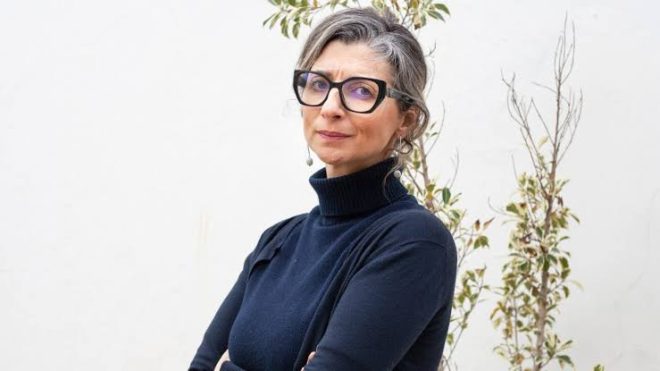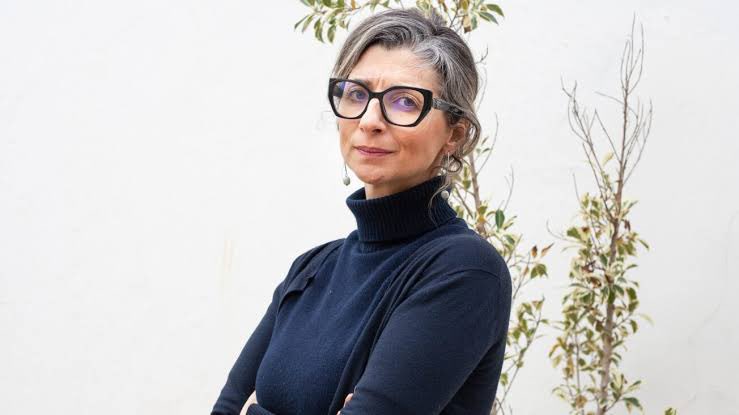
UN Human Rights Council Extends Francesca Albanese’s Mandate Until 2028
In a significant development within the realm of international human rights advocacy, the United Nations Human Rights Council (UNHRC) has announced the extension of Francesca Albanese’s mandate as the Special Rapporteur on the occupied Palestinian territories until 2028. This decision has sparked considerable discourse globally, particularly given the contentious nature of the Palestinian situation and the implications of this role.
Background on Francesca Albanese
Francesca Albanese, an Italian lawyer and human rights expert, has been serving as the UN Special Rapporteur on the occupied Palestinian territories since her appointment. Her work involves monitoring human rights conditions and providing independent assessments of the situation in these territories. Albanese’s previous reports have often highlighted issues such as displacement, violence, and socio-economic hardships faced by the Palestinian people, drawing attention to the impact of policies enacted by both Israeli authorities and other governing bodies.
The UN Human Rights Council’s Decision
On April 5, 2025, the UNHRC made the decision to extend Albanese’s mandate for an additional three years despite facing opposition from various countries. This extension underscores the UN’s commitment to maintaining a focus on human rights issues in the Palestinian territories, which are often overshadowed by geopolitical conflicts and diplomatic tensions. The Council operates under the premise that human rights are universal and should be upheld regardless of political circumstances.
Controversy Surrounding the Mandate
The extension of Albanese’s mandate has not been without its critics. Several countries have expressed opposition, arguing that her reports tend to be biased against Israel and do not adequately reflect the complexities of the Israeli-Palestinian conflict. Detractors assert that the UNHRC has a historical pattern of perceived bias against Israel, which they claim undermines the Council’s credibility.
- YOU MAY ALSO LIKE TO WATCH THIS TRENDING STORY ON YOUTUBE. Waverly Hills Hospital's Horror Story: The Most Haunted Room 502
Conversely, supporters of Albanese argue that her work is essential for shedding light on human rights abuses and advocating for the rights of the Palestinian people. They contend that the extension of her mandate is a necessary step in promoting accountability and ensuring that the international community remains aware of the conditions faced by those living in occupied territories.
Implications for Human Rights Advocacy
The continuation of Francesca Albanese’s role as Special Rapporteur carries several implications for human rights advocacy, both in the context of the Israeli-Palestinian conflict and beyond.
- Increased Visibility: Albanese’s reports and recommendations will continue to bring international attention to the human rights situation in the occupied territories. This visibility is crucial for mobilizing public opinion and influencing policymakers worldwide.
- Accountability: By maintaining an independent observer in the form of the Special Rapporteur, the UNHRC reinforces the principle of accountability for human rights violations. The mandate allows for monitoring and reporting, which can help pressure governments to adhere to international human rights standards.
- Global Discourse: The extension of Albanese’s mandate contributes to the ongoing global discourse surrounding the Israeli-Palestinian conflict. Her perspective as a Special Rapporteur can influence how governments, NGOs, and civil society organizations approach issues related to human rights, peace, and security in the region.
- Potential for Diplomatic Tension: The decision may lead to increased diplomatic tensions, particularly with countries that oppose the UNHRC’s focus on Palestinian issues. This could impact international relations and complicate diplomatic efforts aimed at resolving the Israeli-Palestinian conflict.
The Future of the Mandate
As Francesca Albanese embarks on the next phase of her mandate, it will be critical to observe how her work evolves and the responses it elicits from both supporters and critics. The ongoing situation in the occupied Palestinian territories remains dynamic, and the role of the Special Rapporteur may adapt to address emerging challenges and opportunities.
Conclusion
The UN Human Rights Council’s decision to extend Francesca Albanese’s mandate as Special Rapporteur on the occupied Palestinian territories until 2028 marks a pivotal moment in the realm of international human rights advocacy. While the extension has drawn criticism from various quarters, it also reinforces the UN’s commitment to promoting human rights in one of the world’s most contentious and complex regions. As the situation unfolds, Albanese’s continued advocacy will be vital for ensuring that the human rights of the Palestinian people remain at the forefront of international discussions.
This development serves as a reminder of the ongoing challenges faced in the pursuit of justice and human rights, highlighting the importance of independent monitoring and advocacy in the face of political opposition. As we look forward to the next three years, the international community will be watching closely to see how this mandate impacts the lives of those in the occupied territories and the broader dynamics of the Israeli-Palestinian conflict.

BREAKING: UN Human Rights Council Extends Francesca Albanese’s Mandate Until 2028
The UN HR Council has extended Francesca Albanese’s mandate as Special Rapporteur on the occupied Palestinian territories for an additional 3 years, despite opposition from several countries. pic.twitter.com/tKW2jBaoR6
— Suppressed news. (@SuppressedNws) April 5, 2025
BREAKING: UN Human Rights Council Extends Francesca Albanese’s Mandate Until 2028
In an important development in the realm of international human rights, the UN Human Rights Council has extended Francesca Albanese’s mandate as Special Rapporteur on the occupied Palestinian territories until 2028. This decision comes at a time when global attention on human rights issues is more critical than ever, especially concerning the ongoing situation in Palestine.
Albanese, known for her outspoken views on the Israeli-Palestinian conflict, has been a significant figure in advocating for Palestinian rights. Her reappointment reflects the ongoing commitment of the UN to addressing these complex issues, despite facing backlash from several countries that oppose her stance.
The Role of the Special Rapporteur
So, what exactly does the Special Rapporteur do? This role is crucial in the UN system, as it involves monitoring and reporting on human rights situations in specific regions. The Special Rapporteur provides insights and recommendations based on their findings, aiming to raise awareness and encourage positive change. In Albanese’s case, she focuses on the occupied Palestinian territories, bringing attention to the various human rights violations faced by Palestinian people.
The mandate includes conducting investigations, engaging with stakeholders, and producing reports that highlight the human rights conditions within these regions. By extending her mandate, the UN HR Council signals its endorsement of her efforts to shine a light on these often-overlooked issues.
Francesca Albanese: A Controversial Figure
It’s important to note that Francesca Albanese is not without her critics. Her views on the Israeli-Palestinian conflict have sparked debate and controversy. Some countries have expressed their disapproval of her approach, arguing that it may not contribute positively to the peace process. This opposition, however, has not deterred the UN from recognizing her work and the importance of her role.
Albanese has often emphasized the urgency of addressing human rights violations in the region. Her academic background and extensive experience in international law equip her with a unique perspective on the complexities of the situation, allowing her to advocate effectively for those whose voices are often silenced.
Reactions to the Extension of Albanese’s Mandate
The decision to extend Francesca Albanese’s mandate has garnered mixed reactions across the globe. Supporters of her reappointment argue that it is a necessary step toward accountability and justice for Palestinians. They believe that having an independent voice like Albanese’s is essential in a landscape often dominated by political agendas.
On the other hand, critics, particularly from certain countries, view this extension as a misguided move that may exacerbate tensions. They argue that it could hinder diplomatic efforts aimed at achieving a peaceful resolution to the Israeli-Palestinian conflict.
Regardless of the differing opinions, the extension of Albanese’s mandate is a clear indication that the UN will continue to prioritize human rights issues in this volatile region.
The Importance of Ongoing Dialogue
In discussions about human rights, especially in conflict zones, dialogue is paramount. The extension of Francesca Albanese’s mandate serves as an opportunity to foster conversations about the dire human rights conditions in the occupied Palestinian territories. Engaging various stakeholders, including governments, NGOs, and local communities, is essential in working toward solutions that promote peace and justice.
Albanese’s role as Special Rapporteur allows her to facilitate this dialogue, bringing together diverse perspectives to address the complexities of the situation. Her reports and findings can serve as a basis for discussions that aim to bridge divides and encourage collaborative efforts toward a better future for all involved.
The Broader Context of Human Rights Advocacy
Francesca Albanese’s work is part of a larger narrative of human rights advocacy that transcends borders. The UN Human Rights Council plays a critical role in addressing violations around the world, and the extension of her mandate is just one example of its ongoing commitment to these issues.
Human rights advocacy is vital, especially in regions where political interests often overshadow the rights of individuals. The situation in Palestine is a poignant example, where the struggle for basic human rights continues amidst a backdrop of conflict and political strife.
Looking Ahead: What’s Next for Albanese and the UN?
As Francesca Albanese embarks on her extended mandate, the focus will undoubtedly remain on the human rights situation in the occupied Palestinian territories. The coming years will be crucial for her to continue her work and influence the conversation surrounding Palestinian rights.
The UN Human Rights Council’s decision reflects a broader recognition of the need for accountability and advocacy in such contentious situations. As global awareness of human rights issues grows, so does the responsibility of organizations like the UN to address these matters with integrity and dedication.
Albanese’s reappointment is not just a continuation of her work; it represents a commitment to uphold the principles of human rights that the UN stands for. Her efforts over the next three years will be closely watched as she navigates the challenges and opportunities that lie ahead.
Conclusion
Francesca Albanese’s extension as Special Rapporteur on the occupied Palestinian territories is a significant development in the ongoing struggle for human rights and justice in this region. Despite the challenges and controversies surrounding her role, her work is essential in bringing attention to the plight of those affected by the conflict. As we look to the future, the importance of advocacy, dialogue, and accountability in the realm of human rights cannot be overstated. The world will be watching closely as Albanese continues her mission to highlight the issues and push for meaningful change in Palestine.
Breaking News, Cause of death, Obituary, Today
